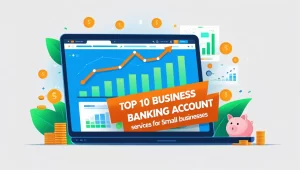Overcoming Obstacles: Startup Business Funding Bad Credit Options

Overcoming Obstacles: Startup Business Funding Bad Credit Options-Starting a business is an exciting yet challenging journey, and one of the biggest obstacles entrepreneurs face is securing the funding needed to bring their vision to life. For those with bad credit, this challenge can feel even more daunting. However, bad credit doesn’t have to be a dealbreaker when it comes to obtaining startup business funding. With the right approach, strategies, and understanding of available resources, entrepreneurs can still find the financial support they need to kickstart their businesses.
In this article, we’ll explore practical solutions and strategies for overcoming the obstacles of bad credit and securing startup business funding.
Understanding the Impact of Bad Credit on Startup Funding
Bad credit is often defined as a credit score below 580. When you’re starting a business, your personal credit history can impact your ability to secure funding from traditional lenders, like banks. Banks typically rely on credit scores to assess the risk of lending, and a low score may lead them to view you as a high-risk borrower. As a result, entrepreneurs with bad credit may struggle to get approved for loans, or may face higher interest rates that add to the financial burden of starting a business.
But here’s the good news: bad credit does not mean you’re completely shut out of funding opportunities. There are numerous alternative funding options available in 2025 that are more flexible and accessible to those with less-than-perfect credit. Let’s dive into these options.
1. Exploring Alternative Lenders

If you’re facing challenges with traditional banks, alternative lenders can be an excellent option for securing startup business funding with bad credit. These lenders offer more flexible criteria and often focus on your business’s overall health and potential rather than your personal credit score.
Online Lenders
Online lending platforms like Kabbage, OnDeck, and Fundbox have become go-to options for many entrepreneurs looking to secure business funding. These lenders tend to evaluate factors like cash flow, sales data, and business performance rather than credit scores alone. The application process is typically faster, and many online lenders offer funding within a few days.
For entrepreneurs with bad credit, online lenders are often more willing to work with you, especially if your business demonstrates steady growth or potential. However, keep in mind that interest rates may be higher than those of traditional banks, but the flexibility can make it worthwhile for many startups.
Peer-to-Peer (P2P) Lending
Peer-to-peer lending platforms like LendingClub and Prosper connect small business owners with individual investors who are willing to provide funds. Unlike traditional lenders, P2P platforms often prioritize the business idea, market potential, and revenue projections over credit history. This makes it easier for those with bad credit to secure startup business funding.
While interest rates may vary, P2P lending offers a great alternative for entrepreneurs who can’t access funding through traditional channels. A strong pitch and clear business plan are essential when using these platforms, as investors are often looking for businesses with high growth potential.
Invoice Financing
If your startup is already generating revenue but you’re struggling with cash flow due to unpaid invoices, invoice financing may be a viable option. With this method, you can borrow against the value of your outstanding invoices. Invoice financing allows you to access funds quickly, without waiting for customers to pay.
This option is beneficial for businesses with slow-paying clients, as it enables them to maintain operations and invest in growth without waiting for invoices to be paid in full. Since it’s based on the value of your invoices rather than your credit history, it can be an ideal solution for those with bad credit.
2. Crowdfunding: A Creative Path to Funding
Crowdfunding has emerged as a popular and creative way for entrepreneurs to secure funding, especially for those with bad credit. Platforms like Kickstarter, Indiegogo, and GoFundMe provide an opportunity to raise money directly from individuals who are interested in supporting your business idea.
Crowdfunding doesn’t rely on your credit score, but rather on the strength and appeal of your business concept. The key to success in crowdfunding is having a compelling pitch that resonates with potential backers. If your business has a strong value proposition, an engaging story, and clear plans for success, crowdfunding can provide the financial boost you need to launch your startup.
Here’s how to run a successful crowdfunding campaign:
- Tell a compelling story: Share why your business idea matters and how it solves a problem or fills a need in the market.
- Offer rewards: For platforms like Kickstarter, backers often receive rewards in exchange for their support, such as early access to products or exclusive offers.
- Promote your campaign: Use social media, email marketing, and your personal network to get the word out and encourage backers to contribute.
Crowdfunding can be an excellent solution for entrepreneurs with bad credit, particularly for businesses with a product or service that people are excited about. (Read More: 5 Key Benefits of Using a Startup Business Line of Credit in 2025)
3. Government Grants and Programs

For entrepreneurs with bad credit, government grants and programs can be a lifesaver. These programs often focus on providing financial support to small businesses and startups that might otherwise struggle to obtain traditional funding. While government grants are competitive and may require significant paperwork, they offer the benefit of non-repayable funding.
SBA Microloans
The Small Business Administration (SBA) offers microloans to small businesses and startups. These loans, which can range from $500 to $50,000, are designed to help entrepreneurs who may have difficulty qualifying for traditional bank loans. SBA microloans are often easier to qualify for than other types of funding and may have more flexible repayment terms.
The SBA works with nonprofit lenders that have more lenient credit requirements, making it a great option for entrepreneurs with bad credit. The loans can be used for working capital, inventory, or equipment, and they typically have lower interest rates than online lenders.
Grants.gov
Another valuable resource for startup business funding is Grants.gov, a website that lists federal grant opportunities for businesses. These grants are often designed to support businesses that are working on innovative projects, creating jobs, or addressing societal needs. The competition for grants can be tough, and the application process is rigorous, but securing a grant can provide significant financial relief without the burden of repayment.
State and Local Government Programs
In addition to federal programs, many states and local governments offer grants, low-interest loans, or tax incentives to encourage business development in their regions. These programs may have specific eligibility criteria, but they are often more accessible than traditional funding options. It’s worth exploring what your state or local government offers to support small businesses and entrepreneurs.
4. Securing Angel Investors
Angel investors are individuals who invest their personal funds into startups in exchange for equity or convertible debt. They tend to be more focused on the growth potential of your business rather than your credit score, which can make them an attractive option for entrepreneurs with bad credit.
Finding angel investors can be challenging, but platforms like AngelList and SeedInvest can connect you with potential investors. When approaching angel investors, be sure to have a solid business plan, clear financial projections, and a strong understanding of your market. Angel investors are often willing to take risks on early-stage businesses, especially if they believe in the potential for growth. (Read More: How to Meet the Qualifications for a Business Credit Card: A Complete Guide)
5. Personal Loans or Lines of Credit
If you’re unable to secure funding through traditional business loans due to bad credit, you may want to explore personal loans or lines of credit. Personal loans tend to have fewer restrictions than business loans, and some lenders may be more willing to work with you despite a less-than-perfect credit score.
A personal line of credit can be especially useful for covering ongoing expenses, as it allows you to borrow funds up to a set limit and only pay interest on the amount you use. However, be cautious when using personal credit for your business, as it can blur the lines between personal and business finances and put your personal assets at risk. (Read More: How a Startup Business Line of Credit Can Fuel Your Growth in 2025)
6. Building Business Credit

If you want to improve your chances of securing future startup business funding, it’s essential to focus on building your business credit. This process involves separating your personal and business finances, establishing credit accounts in your business’s name, and making timely payments.
Over time, building strong business credit can help you qualify for more favorable funding options, including larger loans with lower interest rates. As your business grows and your credit improves, you’ll have more options at your disposal to fund future expansions or overcome financial hurdles.
Conclusion article Overcoming Obstacles: Startup Business Funding Bad Credit Options
Starting a business with bad credit can be challenging, but it’s far from impossible. In 2025, there are numerous funding options available for entrepreneurs who may struggle to secure traditional bank loans. From alternative lenders and crowdfunding to government grants and angel investors, there are creative and accessible paths to securing startup business funding.
By understanding your options, being resourceful, and focusing on your business’s potential, you can overcome the obstacles of bad credit and bring your entrepreneurial dreams to life. Stay persistent, be proactive, and remember that there is always a way forward, no matter the challenges you face.





